Saurajit Mukherjee
Web-Scale Generic Object Detection at Microsoft Bing
Jul 05, 2021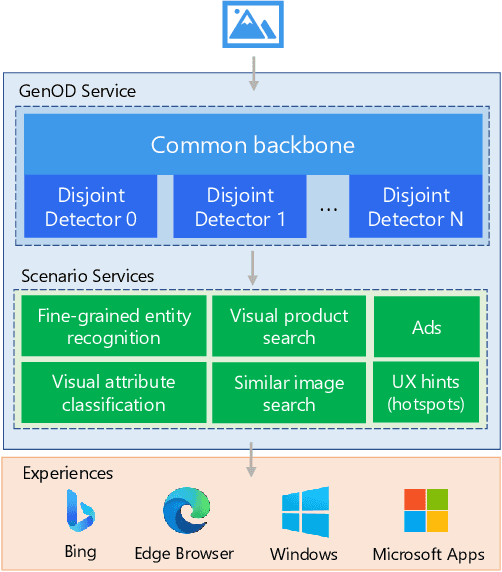



Abstract:In this paper, we present Generic Object Detection (GenOD), one of the largest object detection systems deployed to a web-scale general visual search engine that can detect over 900 categories for all Microsoft Bing Visual Search queries in near real-time. It acts as a fundamental visual query understanding service that provides object-centric information and shows gains in multiple production scenarios, improving upon domain-specific models. We discuss the challenges of collecting data, training, deploying and updating such a large-scale object detection model with multiple dependencies. We discuss a data collection pipeline that reduces per-bounding box labeling cost by 81.5% and latency by 61.2% while improving on annotation quality. We show that GenOD can improve weighted average precision by over 20% compared to multiple domain-specific models. We also improve the model update agility by nearly 2 times with the proposed disjoint detector training compared to joint fine-tuning. Finally we demonstrate how GenOD benefits visual search applications by significantly improving object-level search relevance by 54.9% and user engagement by 59.9%.
Efficient Forward Architecture Search
May 31, 2019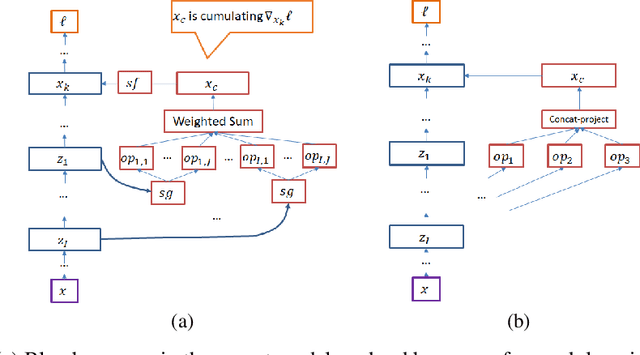
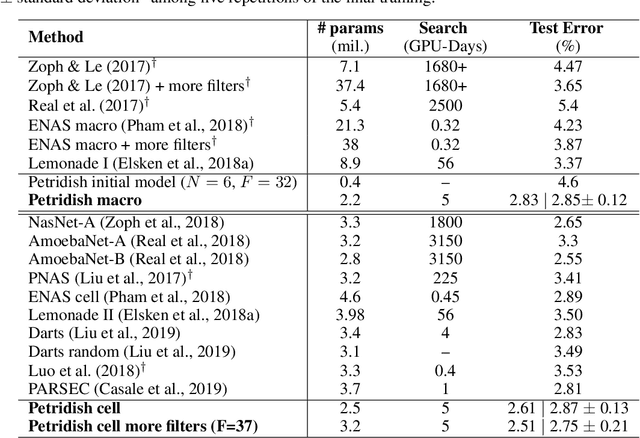
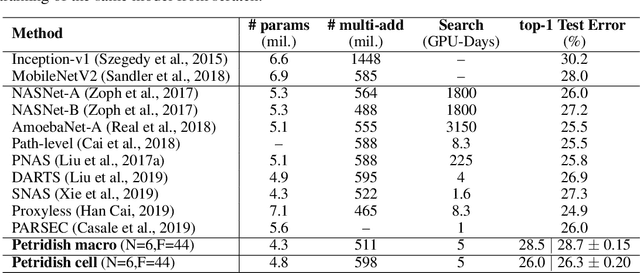
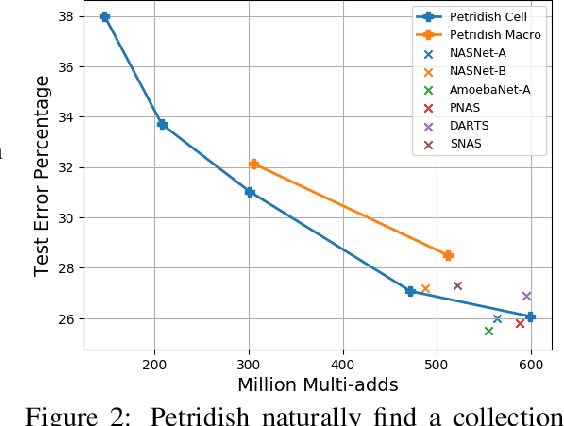
Abstract:We propose a neural architecture search (NAS) algorithm, Petridish, to iteratively add shortcut connections to existing network layers. The added shortcut connections effectively perform gradient boosting on the augmented layers. The proposed algorithm is motivated by the feature selection algorithm forward stage-wise linear regression, since we consider NAS as a generalization of feature selection for regression, where NAS selects shortcuts among layers instead of selecting features. In order to reduce the number of trials of possible connection combinations, we train jointly all possible connections at each stage of growth while leveraging feature selection techniques to choose a subset of them. We experimentally show this process to be an efficient forward architecture search algorithm that can find competitive models using few GPU days in both the search space of repeatable network modules (cell-search) and the space of general networks (macro-search). Petridish is particularly well-suited for warm-starting from existing models crucial for lifelong-learning scenarios.
 Add to Chrome
Add to Chrome Add to Firefox
Add to Firefox Add to Edge
Add to Edge